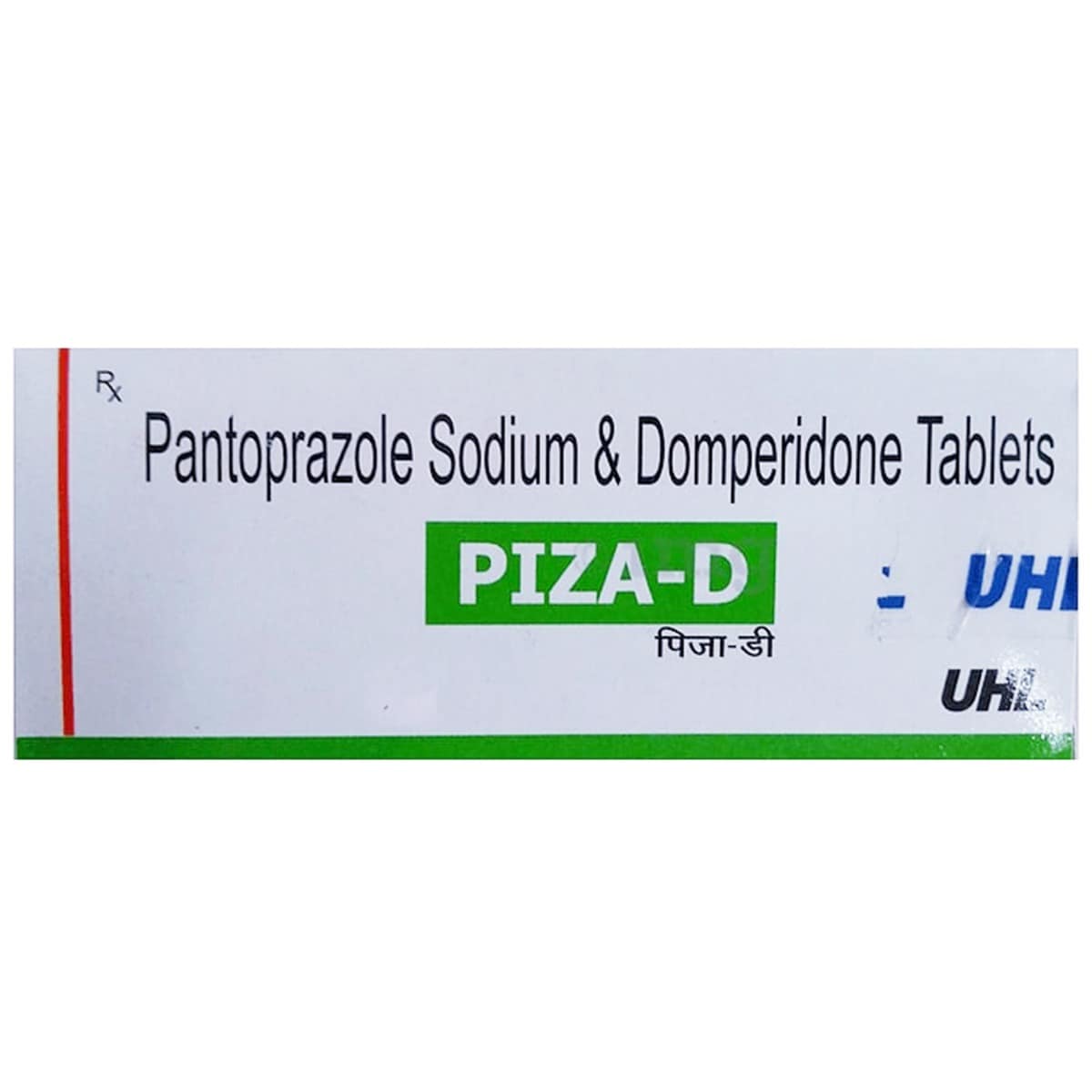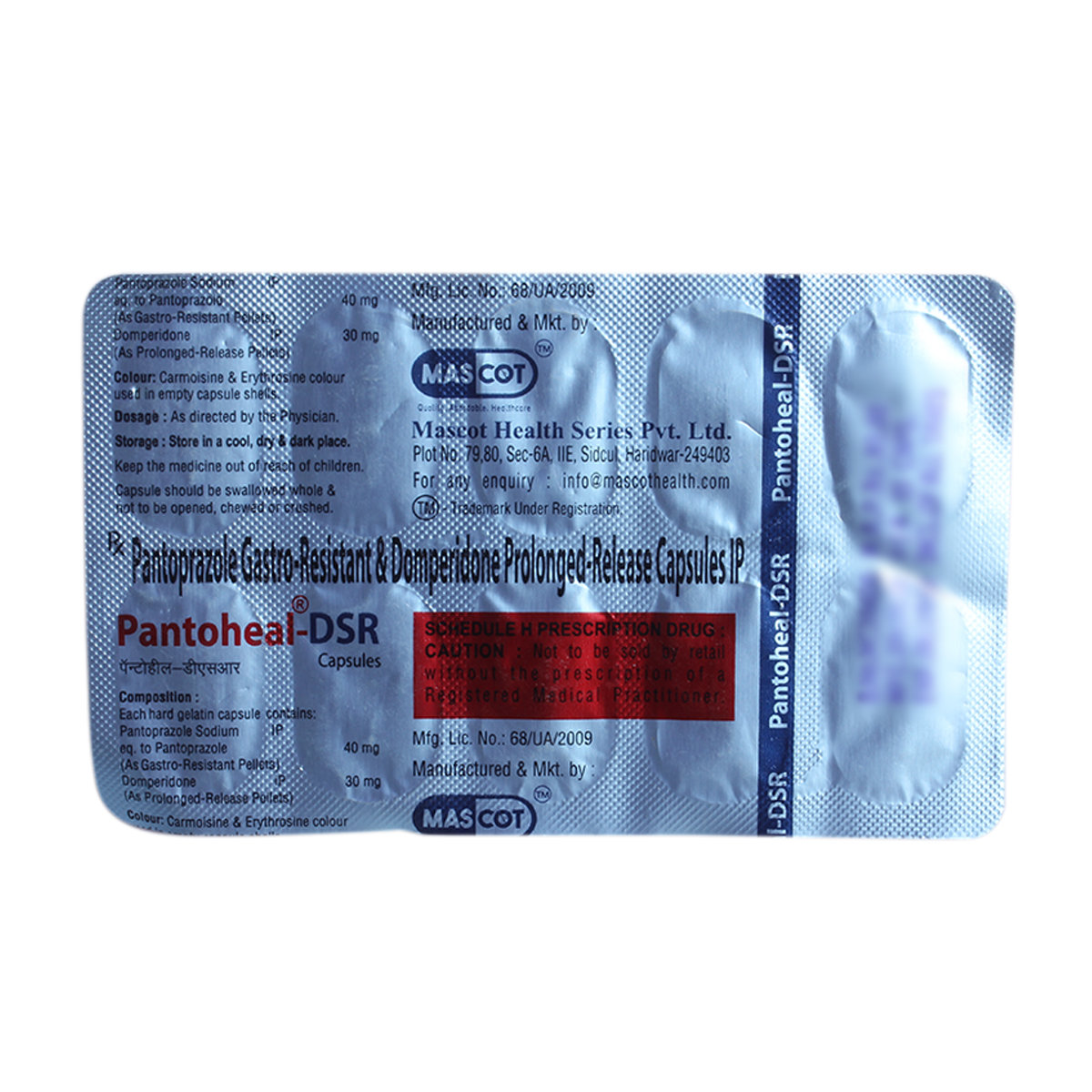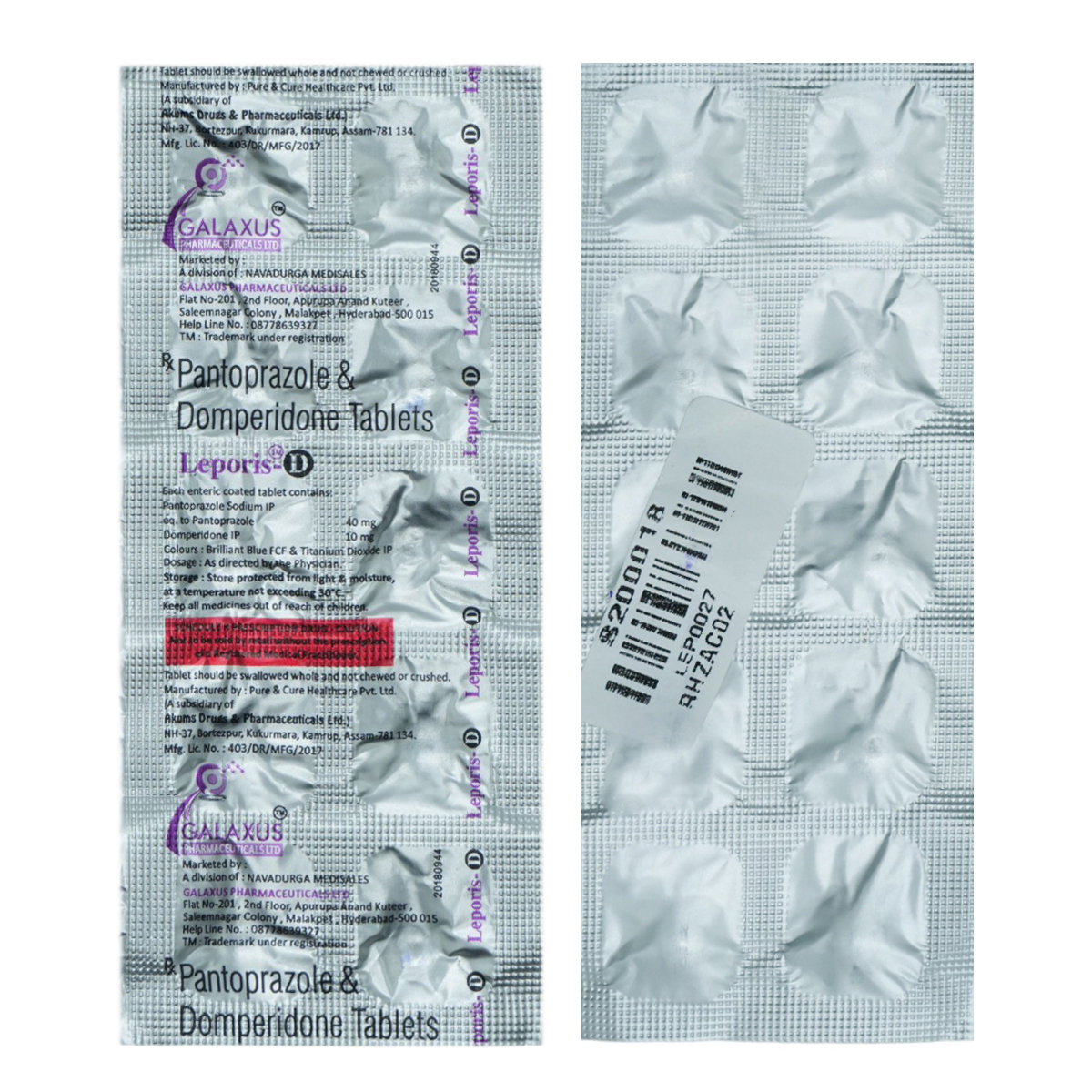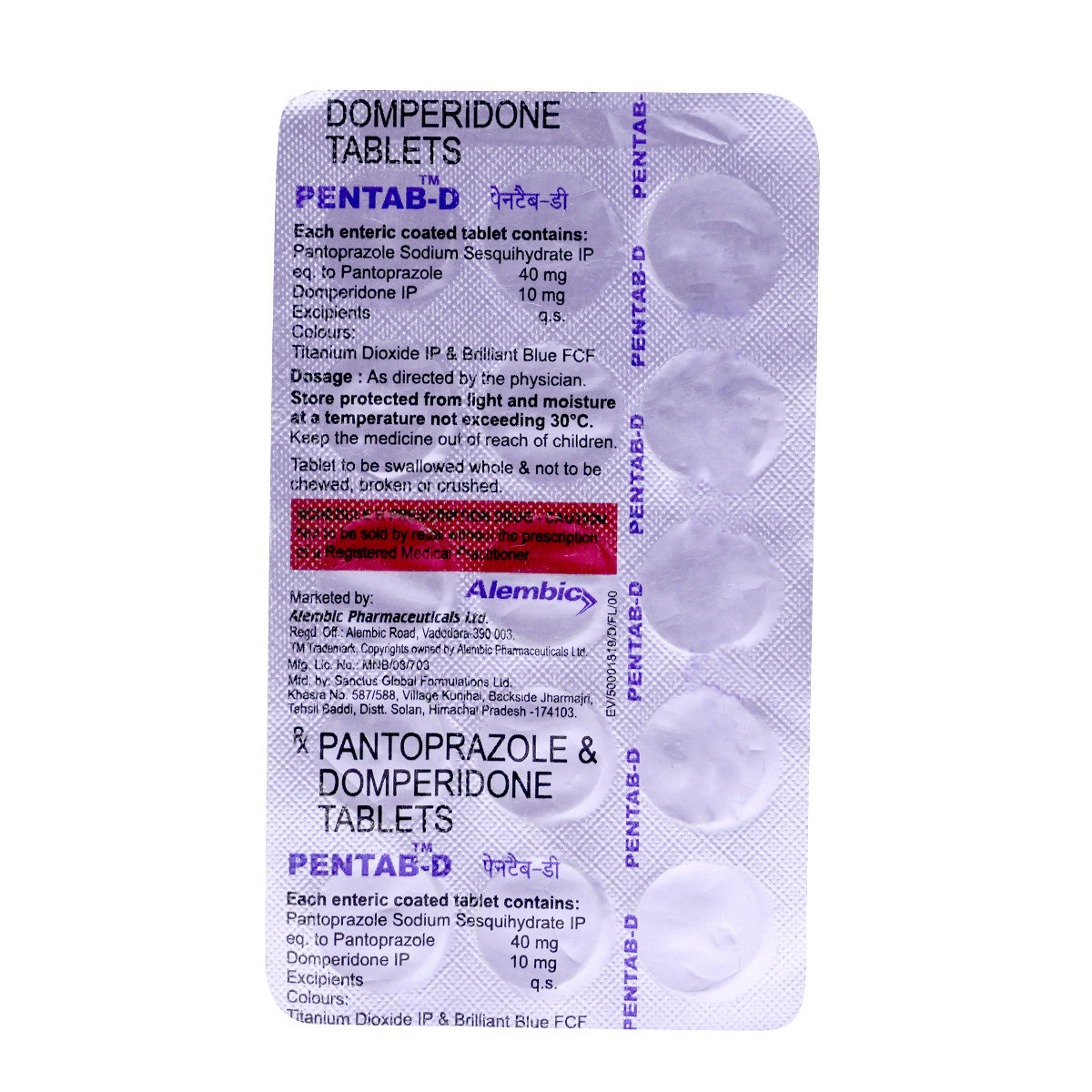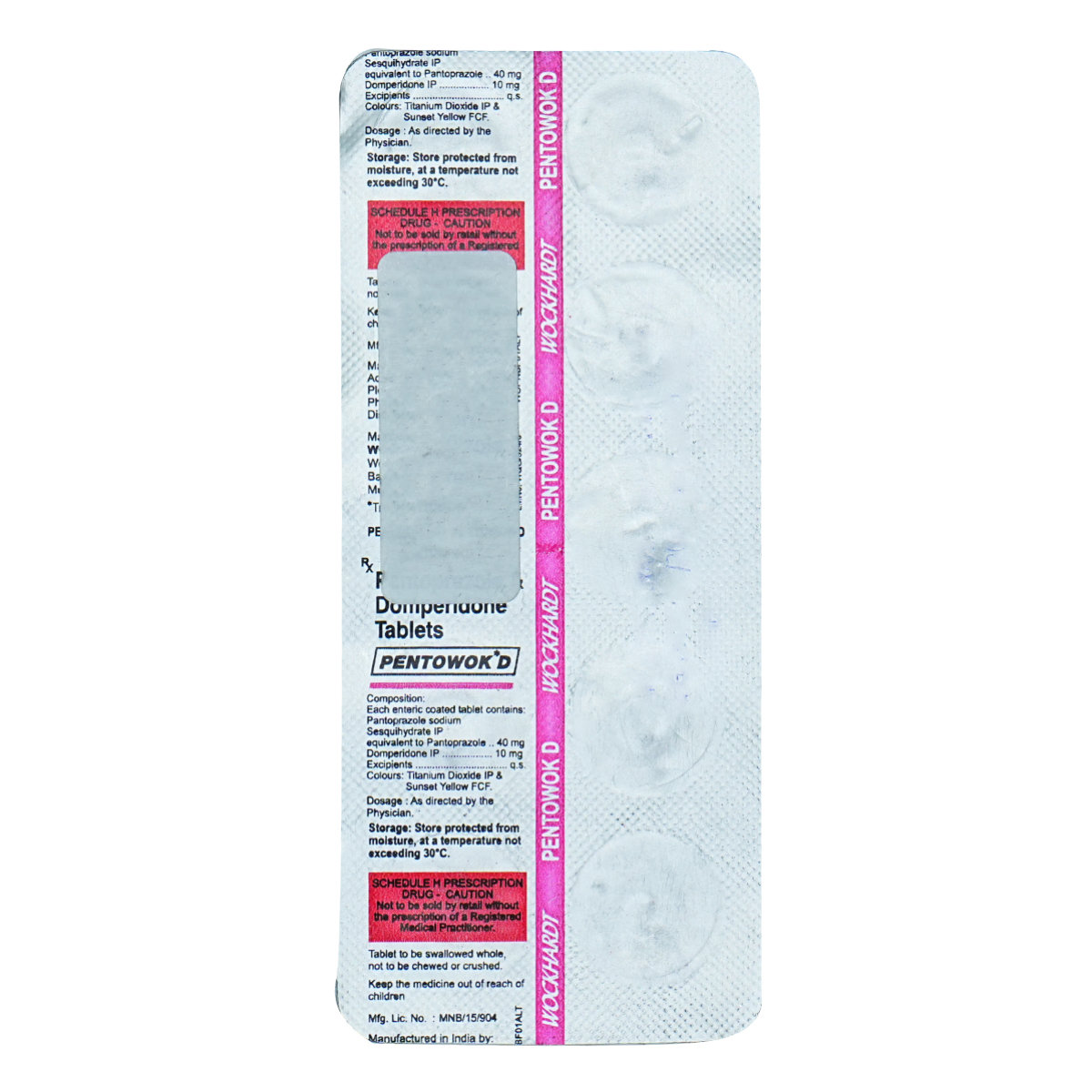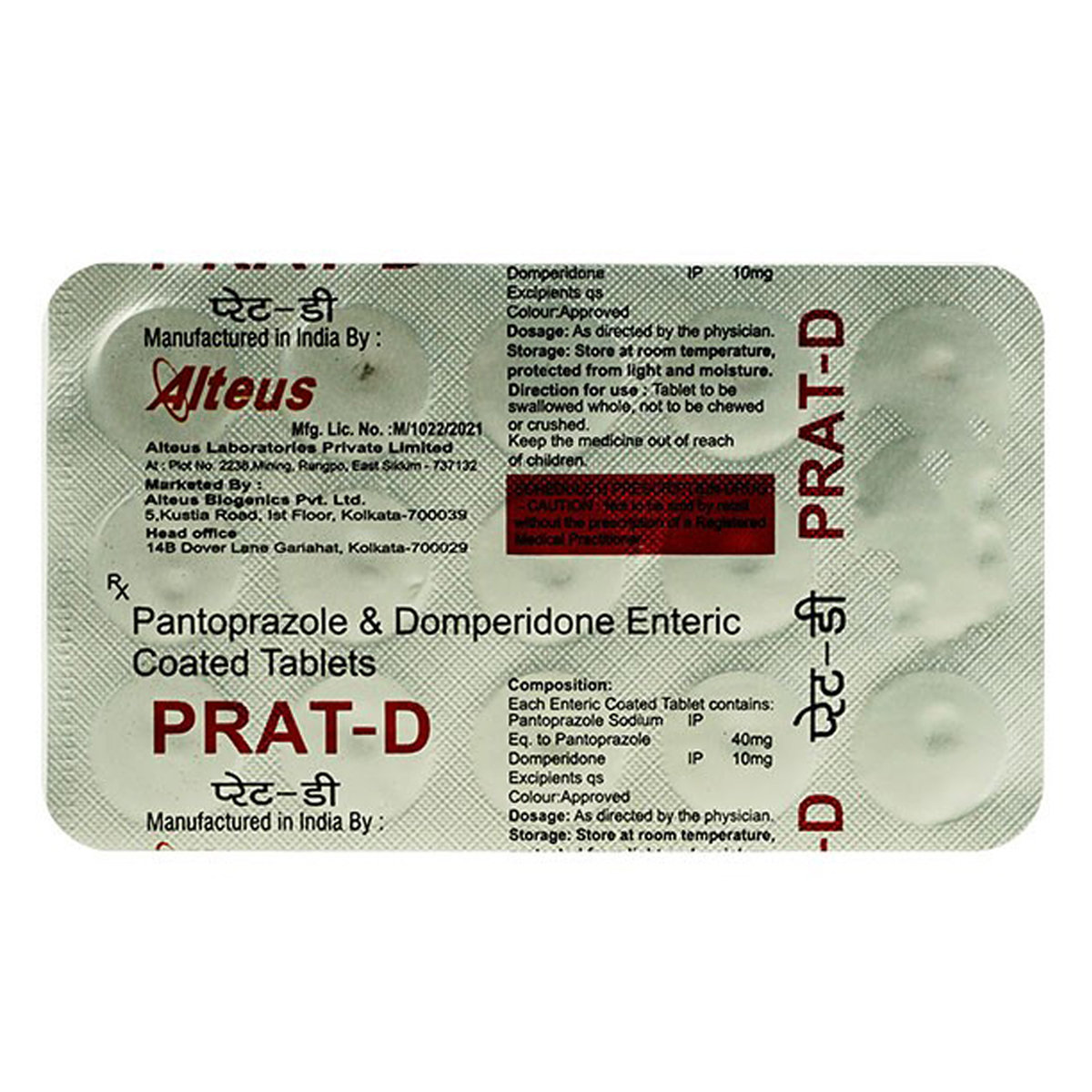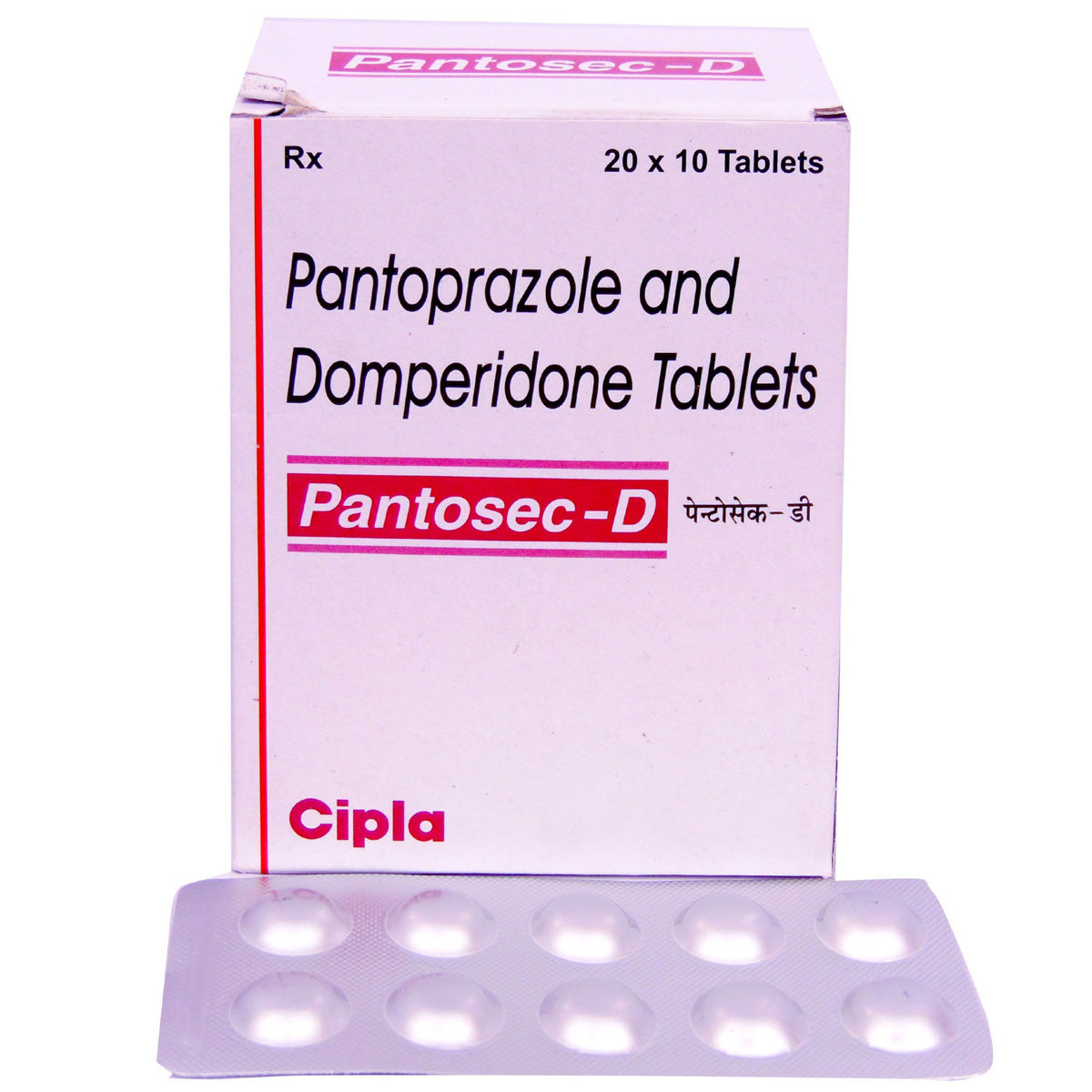STUPAND TABLET
MRP ₹168.5
(Inclusive of all Taxes)
₹25.3 Cashback (15%)
Provide Delivery Location
Online payment accepted
 Prescription drug
Prescription drugWhats That
Composition :
Manufacturer/Marketer :
Consume Type :
Expires on or after :
Return Policy :
About STUPAND TABLET
STUPAND TABLET is composed of two medicines, namely: Domperidone and Pantoprazole. Domperidone is a prokinetic and anti-nausea agent that helps to treat indigestion and stomach pain. On the other hand, Pantoprazole is a proton pump inhibitor that reduces the excess stomach acid formation by blocking the actions of an enzyme (H+/K+ ATPase or gastric proton pump). STUPAND TABLET is a widely used medicine to treat peptic ulcers and gastroesophageal reflux disease (GERD). STUPAND TABLET prevents the release of stomach acid and relieves symptoms of food pipe lining inflammation (esophagitis), and gastroesophageal reflux disease (GERD), or heartburn.
Domperidone works by increasing the movement of food through the stomach and the digestive tract more quickly and in this way reduces the feeling of bloating, or fullness and indigestion. On the other hand, it effectively blocks the action of a vomiting centre (chemoreceptor trigger zone - CTZ) located in your brain, that is responsible for inducing the feeling of nausea and vomiting. Pantoprazole helps in reducing the stomach acid by blocking the actions of an enzyme (H+/K+ ATPase or gastric proton pump). This proton pump lies in the cells of the stomach wall responsible for the release of gastric acid secretion damaging tissues in the food pipe, stomach, and duodenum.
It should be taken as prescribed by the doctor. Like all medicines, STUPAND TABLET may cause side effects, although not everybody gets them. The most common side effects of STUPAND TABLET are diarrhoea, stomach pain, flatulence (gas), dryness in the mouth, dizziness, and headache. Everyone doesn't need to experience the above side effects. In case of any discomfort, speak with your doctor.
It is recommended not to use if you are allergic to any ingredinets present in it. Prolonged intake of Pantoprazole is associated with a low level of Vitamin B12 and low magnesium. Hence yearly test of Vitamin B12 and magnesium is required if you are taking STUPAND TABLET for the long term. Use of STUPAND TABLET is contraindicated in people with lupus (autoimmune inflammatory disease). Try to avoid caffeine-containing beverages (coffee, tea), spicy/deep fried/processed foods, carbonated drinks, acidic foods like citrus fruits/vegetables (tomatoes).
Uses of STUPAND TABLET
Directions for Use
Key Benefits
STUPAND TABLET plays a vital role in preventing nausea, vomiting, stomach upset, stomach pain, peptic ulcer, and other conditions due to hyperacidity or acid reflux. Pantoprazole prevents the proton pumps gate from producing an excessive amount of stomach acid. While Domperidone stops nausea (feeling sick) and vomiting (being sick) blocking messages between parts of your brain called the chemoreceptor trigger zone (CTZ) and the vomiting centre.
- Inform your doctor about your constipation symptoms. They may adjust your medication or advise alternative treatments.
- Stay hydrated by drinking sufficient of water (at least 8-10 glasses a day) to help soften stool and promote bowel movements.
- Increase fibre intake by eating foods high in fibre, such as fruits, whole grains, vegetables and legumes, to help bulk up the stool.
- Establish a bowel routine by trying to go to the bathroom at the same time each day to train your bowels.
- Engaging in regular exercise, like walking or yoga, can support in bowel movement stimulation.
- Consult your doctor if constipation persists, and discuss alternative treatments or adjustments to your medication.
- Inform your doctor about dry mouth symptoms. They may adjust your medication regimen or prescribe additional medications to manage symptoms.
- Drink plenty of water throughout the day to help keep your mouth moist and alleviate dry mouth symptoms.
- Chew sugar-free gum or candies to increase saliva production and keep your mouth moisturized.
- Use saliva substitutes, such as mouthwashes or sprays, only if your doctor advises them to help moisturize your mouth and alleviate dry mouth symptoms.
- Avoid consuming smoking, alcohol, spicy or acidic foods, and other irritants that may aggravate dry mouth symptoms.
- Schedule regular dental check-ups to keep track of your oral health and handle any dry mouth issues as they arise.
Drug Warnings
You should avoid taking STUPAND TABLET if you are allergic to STUPAND TABLET or proton pump inhibitors, have gastric cancer, liver disease, low magnesium level (osteoporosis), low vitamin B12, pregnant or planning for pregnancy, and breastfeeding mothers. STUPAND TABLET may interact with a blood thinner (warfarin), antifungal (ketoconazole), anti-HIV drug (atazanavir, nelfinavir), iron supplements, ampicillin antibiotic, anti-cancer drug (methotrexate). Let your doctor know if you are taking these medicines. Prolonged intake of STUPAND TABLET may cause lupus erythematosus (an inflammatory condition in which the immune system attacks its own tissues), Vitamin B12, and magnesium deficiency. Intake of STUPAND TABLET may mask the symptom of gastric cancer, so if you have any severe stomach pain or gastric bleeding (blood in mucous or stool) immediately consult the doctor.
Drug-Drug Interactions
Drug-Drug Interactions
Login/Sign Up
Co-administration of Rilpivirine is taken with Stupand Tablet, can decrease the absorption and blood levels of Rilpivirine and make the medication less effective.
How to manage the interaction:
Taking Stupand Tablet with Rilpivirine can lead to an interaction, please consult a doctor before taking it. Do not stop using any medications without talking to a doctor.
Co-administration of Domeperidone and Bepridil can increase the risk of irregular heart rhythm.
How to manage the interaction:
Although taking Stupand Tablet and Bepridil together can cause an interaction, it can be taken if your doctor has suggested it. If you experience lightheadedness, tiredness, increased heart rate, consult a doctor. Do not discontinue any medications without consulting a doctor.
Combining Mizolastine with Stupand Tablet can increase the risk or severity of irregular heart rhythms.
How to manage the interaction:
Although taking Stupand Tablet and Mizolastine together can cause an interaction, it can be taken if your doctor has suggested it. However, if you experience sudden dizziness, lightheadedness, fainting, shortness of breath, chest pain or tightness, rapid heartbeat, contact a doctor immediately. Do not discontinue any medications without consulting a doctor.
Coadministration of Stupand Tablet with Cisapride can increase the blood levels of Stupand Tablet.
How to manage the interaction:
There may be a possibility of interaction between Stupand Tablet and Cisapride, but it can be taken if prescribed by a doctor. In case you experience any side effects like swelling of the ankles or feet, unusual tiredness, redness, changes in menstrual ability, contact a doctor. It is recommended to do this to ensure your heart stays healthy. Do not stop using any medications without talking to a doctor.
Coadministration of Stupand Tablet with Halofantrine can Increase the risk of irregular heart rhythm.
How to manage the interaction:
Although taking Stupand Tablet and Halofantrine together can cause an interaction, it can be taken if your doctor has suggested it. If you experience lightheadedness, tiredness, increased heart rate, consult a doctor. Do not discontinue any medications without consulting a doctor.
Coadministration of Stupand Tablet with Nefazodone can increase the blood levels of Stupand Tablet.
How to manage the interaction:
There may be a possibility of interaction between Stupand Tablet and Nefazodone, but it can be taken if prescribed by a doctor. In case you experience any side effects like swelling of the ankles or feet, unusual tiredness, redness, changes in menstrual ability, contact a doctor. It is recommended to do this to ensure your heart stays healthy. Do not stop using any medications without talking to a doctor.
Coadministration of Stupand Tablet with Toremifene can Increase the risk of irregular heart rhythm.
How to manage the interaction:
Although taking Stupand Tablet and Toremifene together can cause an interaction, it can be taken if your doctor has suggested it. If you experience lightheadedness, tiredness, increased heart rate, consult a doctor. Do not discontinue any medications without consulting a doctor.
Coadministration of Stupand Tablet with Ketoconazole can Increase the risk of irregular heart rhythm.
How to manage the interaction:
Although taking Stupand Tablet and Ketoconazole together can cause an interaction, it can be taken if a doctor has suggested it. If you experience lightheadedness, tiredness, increased heart rate, consult a doctor. Do not discontinue any medications without consulting a doctor.
Coadministration of Stupand Tablet with Ritonavir can increase the blood levels of Stupand Tablet.
How to manage the interaction:
There may be a possibility of interaction between Stupand Tablet and Ritonavir, but it can be taken if prescribed by a doctor. In case you experience any side effects like swelling of the ankles or feet, unusual tiredness, redness, changes in menstrual ability, contact a doctor. It is recommended to do this to ensure your heart stays healthy. Do not stop using any medications without talking to a doctor.
Coadministration of Stupand Tablet with Clarithromycin can increase the risk of side effects.
How to manage the interaction:
There may be a possibility of interaction between Stupand Tablet and Clarithromycin, but it can be taken if prescribed by a doctor. Do not stop using any medications without talking to a doctor.
Drug-Food Interactions
Drug-Food Interactions
Login/Sign Up
Diet & Lifestyle Advise
- Avoid intake of acid or heartburn-triggering foods or drinks like onions, peppermint, chocolate, caffeinated beverages, citrus fruits or juices, tomatoes and high-fat and spicy foods.
- Before going to sleep, try to raise your bedhead so that your head and chest are higher than your feet. Do not use piles of pillows; one raised block is fine. This will not allow the stomach acid to backflow through your food pipe.
- Avoid taking alcohol and smoking cigarettes. Alcohol can raise the level of production of stomach acid leading to heartburn and acid reflux. On the other hand, nicotine smoking damages the valve (sphincter), which prevents backflow of the stomach acid back into the food pipe.
- Include high fibre-containing foods, berries, cherries, leafy green veggies (kale, spinach) and black peppers in your meal. These foods are full of antioxidants, calcium and vitamin B 12 that can help cope with the long-term effects of the medicine. Fermented dairy products like miso, sauerkraut, and kimchi contain probiotics which help prevent excess stomach acid production. Cranberry juice can be beneficial for peptic ulcers and H Pyroli infection.
- Avoid regular sitting continuously, as it can increase stomach acid production. Take a break of 5 minutes in 1 hour by brisk walking or stretching.
Side Effects of STUPAND TABLET
- Headache
- Diarrhoea
- Nausea
- Abdominal pain
- Vomiting
- Flatulence
- Dizziness
- Arthralgia (joint pain)
Habit Forming
Therapeutic Class
All Substitutes & Brand Comparisons
RX
Saipan-D Tablet 10's
Econ Healthcare
₹82
(₹7.38 per unit)
51% CHEAPERRX
Piza-D Tablet 10's
Unimarck Healthcare Pvt Ltd
₹83.5
(₹7.52 per unit)
50% CHEAPERRX
Anleo-D Tablet 10's
An Pharmaceuticals Pvt Ltd
₹84
(₹7.56 per unit)
50% CHEAPER
Author Details
We provide you with authentic, trustworthy and relevant information
Drug-Diseases Interactions
Drug-Diseases Interactions
Login/Sign Up
FAQs
Drug-Drug Interactions Checker List
- CLOPIDOGREL
- WARFARIN
- KETOCONAZOLE
- VORICONAZOLE
- ITRACONAZOLE
- POSACONAZOLE
- ATAZANAVIR
- NELFINAVIR
- AMPICILLIN
- RIFAMPICIN
- DIGOXIN
- METHOTREXATE
Disease/Condition Glossary
Normally a thick layer of mucous protects the stomach against its own acid secretion. But, in long run, it gets eroded by excessive stomach acid production leading to complications like GERD, peptic ulcer, and Zollinger Ellison syndrome. Gastroesophageal reflux disease (GERD) is a gastrointestinal disorder that occurs when stomach acid frequently flows back into the food pipe (oesophagus). This backflow (acid reflux) irritates the food pipe that causes heartburn. On the other hand, a peptic ulcer is a painful condition followed by the development of sores or ulcers in the stomach lining or duodenum (first part of the small intestine). Zollinger Ellison syndrome is a rare condition in which a gastrin-secreting tumour of the pancreas causes excessive acid production leading to peptic ulcers.

Have a query?
Alcohol
Safe if prescribed
It is best to avoid alcohol while taking medication.
Pregnancy
Consult your doctor
If you are pregnant, think you may be pregnant or are planning to have a baby, ask your doctor for advice before taking this medicine. You should use this medicine only if your doctor considers the benefit for you greater than the potential risk for your unborn child or baby.
Breast Feeding
Consult your doctor
STUPAND TABLET should be used in breastfeeding mothers only if the benefits outweigh the risks.
Driving
Safe if prescribed
Drive only if you are physically stable and mentally focussed, If you experience drowsiness after taking STUPAND TABLET you should not drive or operate any machinery or vehicles.
Liver
Consult your doctor
In patients with severe liver impairment, the liver enzymes should be monitored regularly during treatment with pantoprazole, particularly on long-term use
Kidney
Consult your doctor
Inform your doctor before receiving the STUPAND TABLET if you have a kidney impairment/disorder. Your doctor will prescribe only if the benefits outweigh the risks.
Children
Safe if prescribed
STUPAND TABLET can be given safely to children provided; dose has been prescribed by a child specialist.




